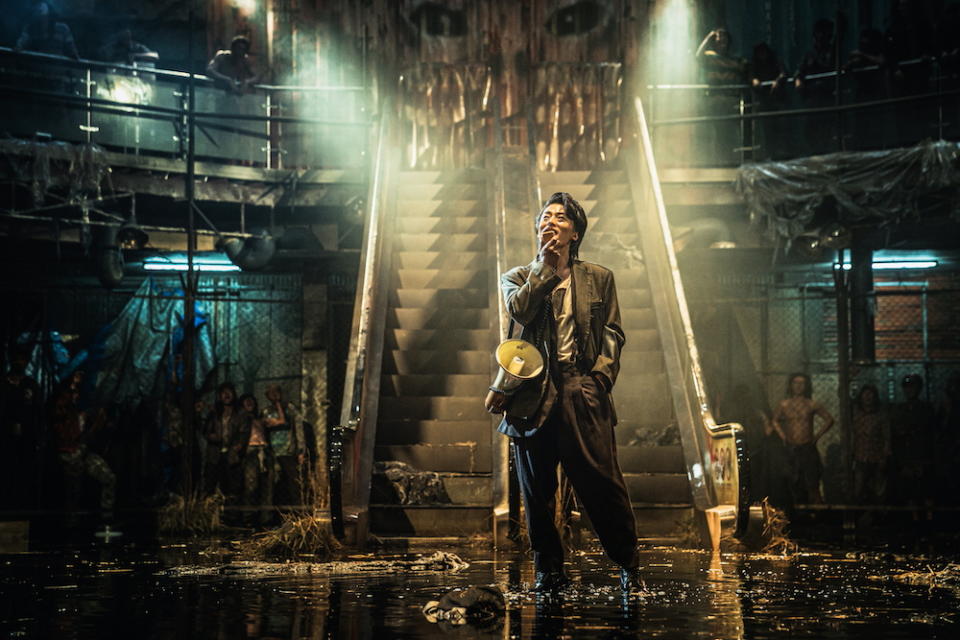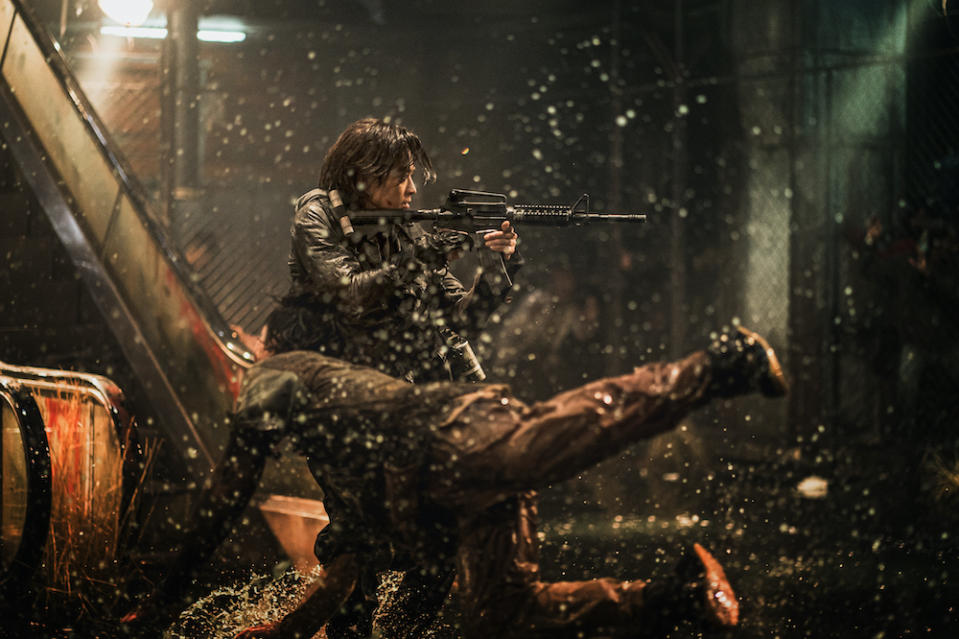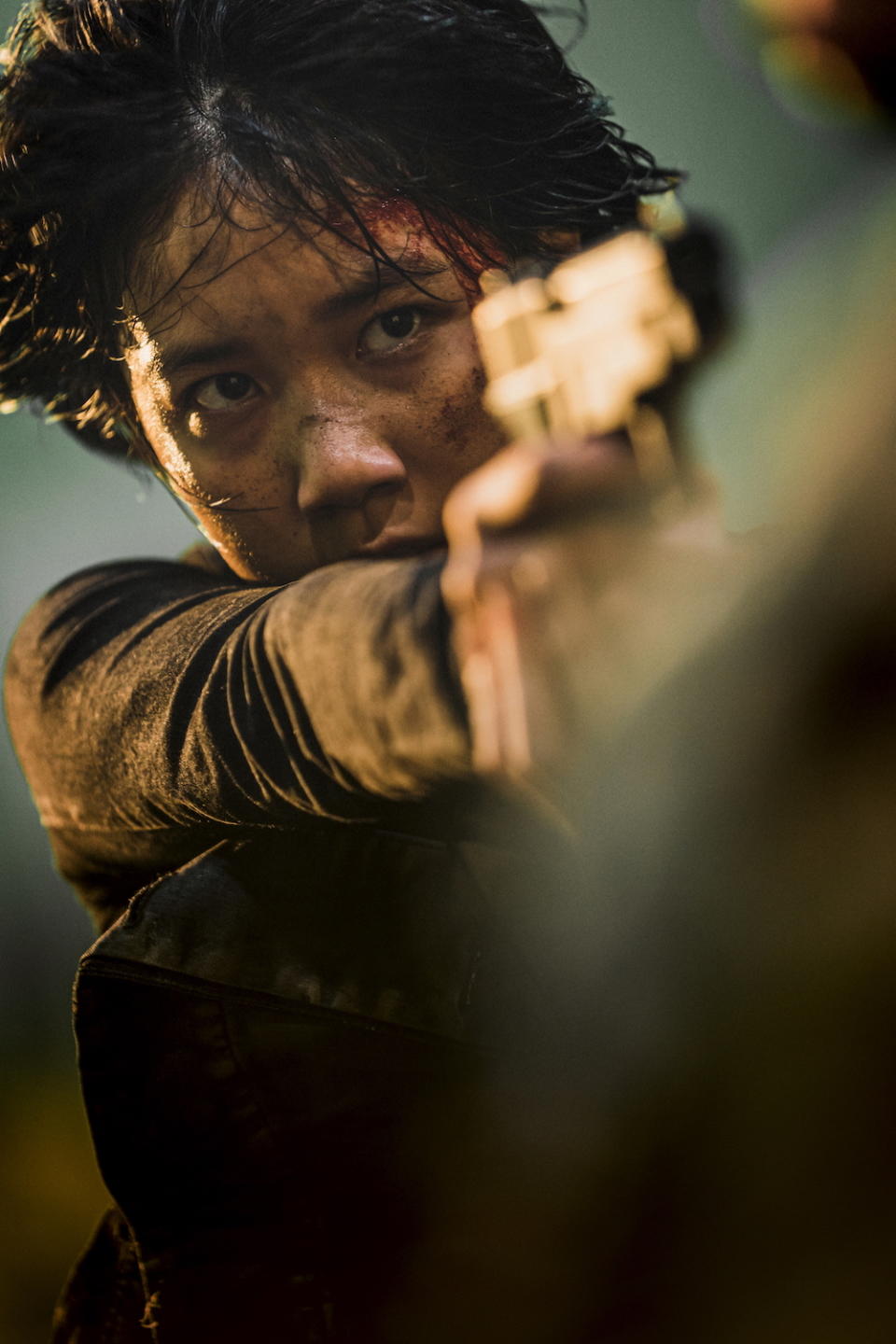REVIEW: Train To Busan: Peninsula - too many humans, too few zombies

Rating: NC16
Length: 116 minutes
Director: Yeon Sang-ho
Writers: Park Joo-Suk and Yeon Sang-ho
Cast: Gang Dong-won, Lee Jung-hyun, Kwon Hae-hyo, Kim Min-jae, Koo Gyo-hwan, Kim Do-yoon, Lee Re, Lee Ye-won
Score: 3 out of 5 stars
It's hard to live up to the standards of a hit like Train To Busan, and its sequel, Train To Busan: Peninsula, hits far off the mark. For a franchise that is literally all about the zombies, this film doesn't give us enough of them. Perhaps director Yeon Sang-ho felt that it would be repetitive to see similar zombie chase sequences, so he avoided doing anything similar to the memorable scenes in its predecessor. But the fact remains that people go to see a zombie movie precisely because they want to see hordes of zombies attack overwhelming human meatsacks, no matter how many times they've seen it before.

Train To Busan: Peninsula, also known as simply Peninsula, is a zombie movie that takes place four years after the events in Train To Busan. A ragtag team of Korean refugees are sent back into zombie-ridden Korea on a mission — only to discover that there are still human survivors in the undead wasteland. Now, not only must they dodge quick and hungry zombies, they have to deal with different human factions amidst the urban ruins of Seoul and find a way out.
Zombies are critically lacking in the film. It's not that we don't get enough of them — the film makes sure that we see zombies at the beginning and end, and does some interesting action sequences with them (like seeing them contort back to "life" after being infected). However, the zombies are not the main problem in this film, since it seems like the humans can handle them easily enough. It's the humans who are the problem, the humans who present the conflict, and the humans who are the main obstacles in the movie.

Maybe this is due to the sprawling cast of the movie. After all, it'll be odd to have a team of eight or nine survivors making their way through a zombie-infested city as there'll be fewer opportunities for conflict. But the movie goes in the complete opposite direction and makes it all about politicking and human drama between the factions that remain in Seoul. For a zombie film, there was too much focus on the power struggle between the bad guys and family drama.
The film tries to give a Mad Max-esque feel to its setting, what with the pillaging humans and their jury-rigged vehicles tearing across post-apocalyptic urban terrain. It's an interesting treatment for sure, and as a setting it makes the film a little bit more interesting. But it keeps on injecting dystopian, post-apocalyptic elements into the film (at the expense of the zombies), until the whole genre of the film is muddied. It's not that it can't be both a post-apocalyptic dystopian film and a zombie movie, it's that director Yeon can't juggle both in a satisfactory way. It feels like he was obliged to make another zombie movie but wanted to do a Korean version of Mad Max with zombies instead.

Where this comes across most obviously is in the penultimate climax, where there's an exciting chase sequence across the city ruins, with zombies threatening to devour either side. It certainly feels derivative, and a chase sequence means that the zombies are no longer in the forefront of the scene. It exemplifies the biggest flaw of the film, that zombies don't matter all that much, since the humans pretty much know how to deal with them effectively. Nevertheless, it's a fun chase sequence to watch.
The main character, Jung-seok (Gang Dong-won), also lacks likeability. The film centres on him, but his character arc (if any) is minimal at best — he's emotionally torn at the beginning, and a little bit less emotionally torn at the end. The supporting characters (and their respective demises) are far more interesting, and overshadow the main character in terms of emotional resonance. It's not strictly necessary for a zombie movie to have character arcs (since anybody could die) in any case, so the supporting characters are the icing on the cake.

Train To Busan: Peninsula's treatment of its setting is interesting but overdone, and its supporting characters are what gives the film its watchability. As a standalone zombie movie, it's all right. But as a film that carries the mantle of being Train To Busan's sequel, it's a huge disappointment.
Release dates:
Singapore — 15 July
Malaysia — 16 July
Philippines — 12 August
Read also:
Review: 'Train to Busan' is as much about character development as it is about zombies
5 classic stereotypes in all zombie movies like ‘Train to Busan’
Marcus Goh is a television scriptwriter who writes for “Crimewatch”, as well as popular shows like “Lion Mums”, “Code of Law”, “Incredible Tales”, and “Police & Thief”. He’s also a Transformers enthusiast and avid pop culture scholar. You can find him on social media as Optimarcus and on his site. The views expressed are his own.
Stay in the know on-the-go: Join Yahoo Singapore's Telegram channel at http://t.me/YahooSingapore



